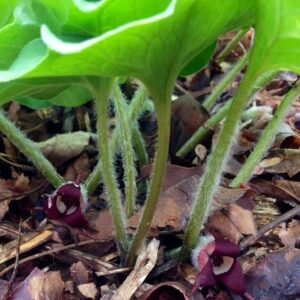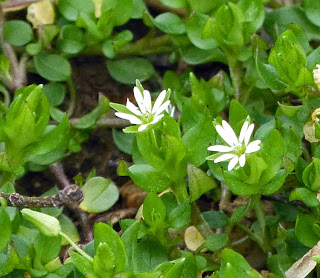 |
| Common Chickweed |
What is a weed? The simple definition says “A wild plant growing where it is not wanted and in competition with cultivated plants.”
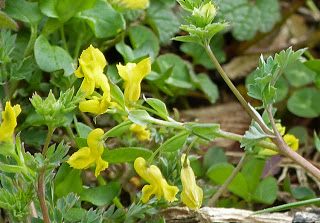 |
| Yellow Corydalis |
The term weed is a subjective one, without any classification value, since a plant that is a weed in one context is not a weed when growing where it belongs or is wanted. Indeed, a number of plants that many consider “weeds”, are often intentionally grown by people in gardens or other cultivated-plant settings. Therefore, a weed is a plant that is considered by the user of the term to be a nuisance. The word commonly is applied to unwanted plants in human-controlled settings, especially farm fields and gardens, but also lawns, parks, woods, and other areas. More vaguely, “weed” is applied to any plants that grow and reproduce aggressively and invasively.
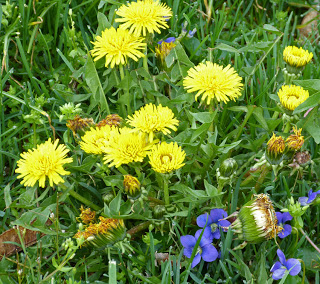 |
| Dandelions |
Weeds can be native or non-native, invasive or non invasive, and noxious or not noxious. Legally, a noxious weed is any plant designated by a Federal, State or county government as injurious to public health, agriculture, recreation, wildlife or property.
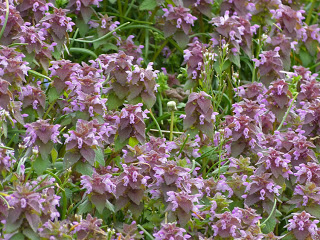 |
| Red Dead Nettle |
Are invasive plants the same as noxious weeds? Not necessarily, although many noxious weeds are invasive. Invasive plants include not only noxious weeds, but also other plants that are not native to this country or to the area where they are growing. The Bureau of Land Management considers plants invasive if they have been introduced into an environment where they did not evolve. As a result, they usually have no natural enemies to limit their reproduction and spread. Some invasive plants can produce significant changes to vegetation, composition, structure, or ecosystem function.
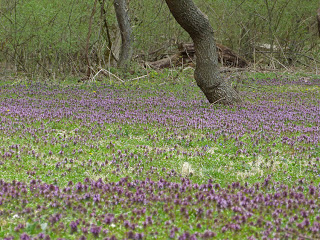 |
| Red Dead Nettle Fills a Field |
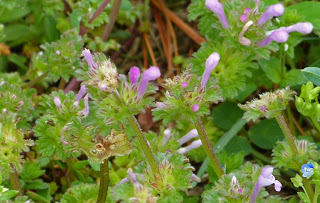 |
| Henbit |
All that being said, sometimes weeds have beautiful delicate little flowers. You have to get down on your knees to see them closely. Compare the pagoda structure of Red Dead Nettle leaves with the whorled uplifted leaves of Henbit. The leaves, stem, and flowers of Henbit are edible and are faintly reminiscent of spinach.
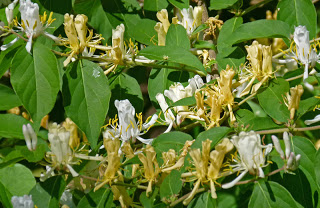 |
| Japanese Honeysuckle |
Weeds are troublesome in many ways. They reduce crop yield by robbing water, light, space, and soil nutrients. Weeds can produce allelopathic substances that are toxic to crop plants. Weeds often serve as hosts for crop diseases; they also may provide shelter for insects and diseases to overwinter. But you must admit, their flowers are often beautiful.








